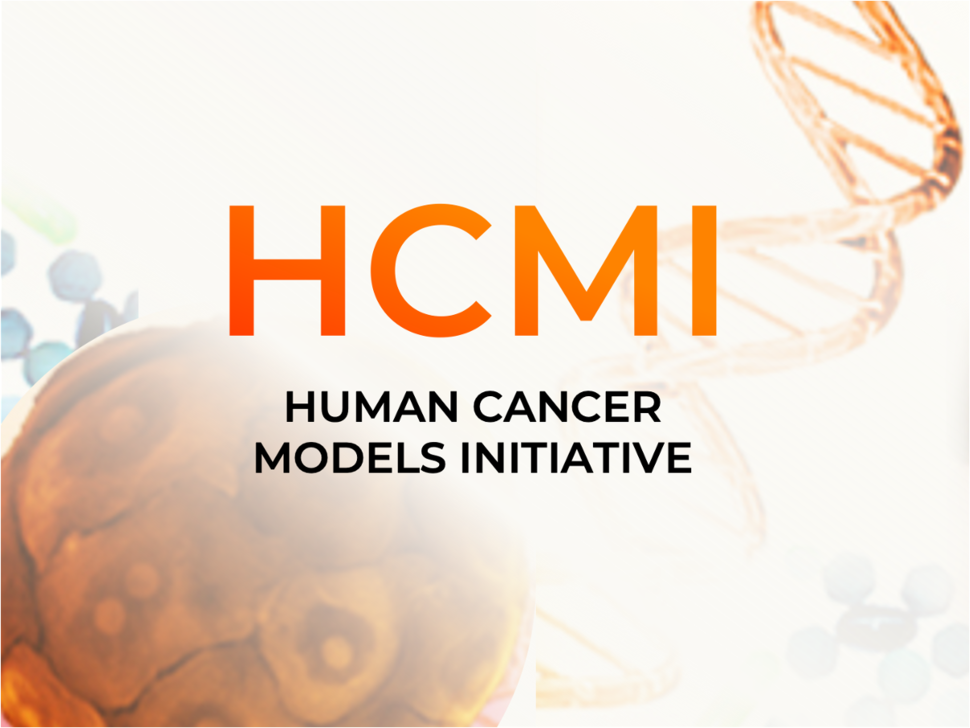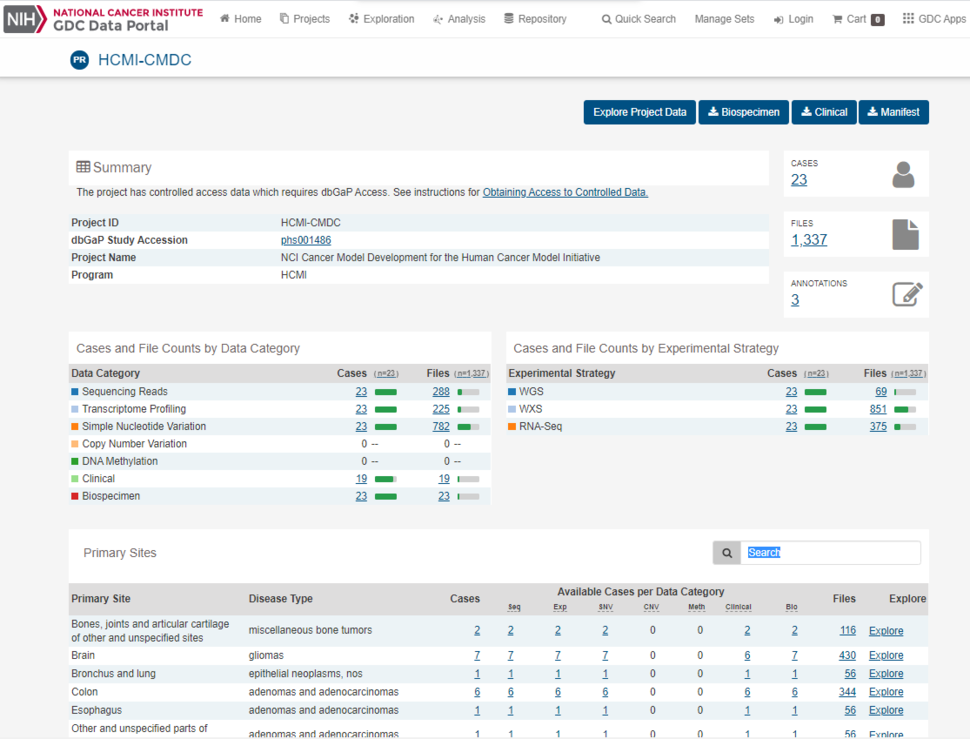Next-Generation Cancer Models Available as a Community Resource
, by Eva Tonsing-Carter, Ph.D. and Cindy Kyi, Ph.D.
The Human Cancer Models Initiative (HCMI) is an international consortium of the National Cancer Institute (NCI), Wellcome Sanger Institute, Cancer Research UK, and Hubrecht Organoid Technology. The goal of the consortium is to generate patient-derived Next-generation Cancer Models (NGCMs) such as organoids, conditionally reprogrammed cells, neurospheres, or optimal growth condition models as a community resource. HCMI aims to provide the models’ case-associated data, which includes quality-checked clinical, biospecimen, and molecular characterization data from the models, the tissues from which they were derived, and normal tissues, when available.
NGCM systems present a unique opportunity for the scientific community to study individual human tumors in vitro to further advance knowledge in a variety of research areas such as development of novel cancer therapeutics, cancer biology, biochemistry, and genetics.
HCMI Searchable Catalog
The HCMI models and their case-associated data are available to researchers as a community resource. Available models may be queried through the HCMI Searchable Catalog, a continuously updated resource of HCMI models. A summary of currently available models by cancer type, model type, and tissue type is described below (Figure 1).
Within the Catalog, users can filter and identify models by patient demographics, tumor, and model elements including age at diagnosis, sex, treatment information, clinical tumor diagnosis, primary site, clinical stage, and type of model (e.g. 3D-organoid, 2D-conditionally reprogrammed cells), etc. (Figure 2). Users may select specific models and download their associated Catalog data for later use. For additional assistance in navigating the Searchable Catalog, please see the “HCMI Searchable Catalog User Guide”. Each specific model page contains external links to the model distributor and to the model’s case-specific data page at NCI’s Genomic Data Commons (GDC) which includes all available clinical, biospecimen, and molecular characterization data. New models and data are added to the HCMI Searchable Catalog as they become available.
HCMI model-associated data
The models’ case-associated clinical, biospecimen, and molecular characterization data are stored at the GDC (Figure 3). NCI’s Clinical Data Center intakes clinical data from the Cancer Model Development Centers (CMDCs), quality checks (QCs), and transfers the data to the GDC. The Biospecimen Processing Center extracts and QCs nucleic acids from the normal and tumor tissues and the derived model for molecular characterization. NCI’s Genomic Characterization Centers perform and QC 15x whole genome sequencing (WGS) and 150x whole exome sequencing (WXS) on DNA from normal tissue, parent tumor, and derived model, and 120 million read RNA sequencing (RNA-Seq) on RNA from the parent tumor and the derived model, when possible. Epigenetic characterization data will be available for some of the HCMI models in the future. While the consortium aims to provide the data described, availability of the models’ case-associated information may differ among the CMDCs. The HCMI models’ case-associated data is submitted to the GDC where additional quality-checks and harmonization of the data are performed through their analytical pipeline. Harmonized HCMI data are available at the HCMI-CMDC page at the GDC data portal. HCMI data at the GDC can be either open-access, which does not require prior permission, or controlled-access, which requires user certification through NCBI’s dbGaP. Open-access data include de-identified clinical data, biospecimen data, and tumor and model associated masked somatic mutation data while controlled-access data include harmonized datasets which may contain germline variants. Read HCMI Model-associated Data Available at NCI’s Genomic Data Commons for more information on HCMI data at the GDC. See “Accessing HCMI Data” page for information on data access. Users may join the GDC User Mailing List to receive email updates on GDC data releases.
HCMI models in precision oncology
HCMI NGCMs serve as innovative research tools to study cancers, disease progression, collect data on accumulation of genetic aberrations, and make clinical correlations. The advantages of using HCMI’s NGCMs over traditional cell lines include the availability of clinical data such as patient and tumor clinical information, histopathological biomarkers, and molecular characterization data of the derived model and associated normal and tumor tissues.
More models to be added to the community resource
NCI’s commitment to decrease cancer health disparities supports model development from racially and ethnically diverse populations. OCG has partnered with the Center to Reduce Cancer Health Disparities (CRCHD) to collect tumors and clinical data from racial and ethnic minority populations for HCMI NGCM development. The overarching goal of HCMI is to generate 1,000 NGCMs from many human cancer subtypes, including breast, colorectal, glioblastoma, gastroesophageal, lung, melanoma and pancreas. Models from rare adult and pediatric cancers including neuroblastoma, osteosarcoma, Wilms tumor, rhabdomyosarcoma, and Ewing sarcoma have been developed by HCMI. Model generation from new cancer types including kidney, ovarian, and endometrial cancers is currently ongoing. As these models are generated, they will join the collection of HCMI NGCMs. Since HCMI is a highly active program, please check the HCMI Searchable Catalog for current availability of HCMI NCGMs and associated data.


